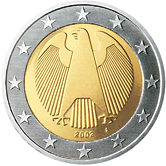The European Union’s stuttering economic recovery and ongoing debt crisis have called attention to the significant economic and commercial imbalances that exist within the union. In particular, Germany has been pointed to as a model of fiscal and economic governance, both for its strong GDP growth in 2010 and 2011 after the severe contraction of 2009, and for the surprisingly favorable conditions in its labor market. German employment has expanded over the past three years to well above precrisis levels, contrasting markedly with the experience of other European countries. Whereas in 2008 Germany’s rate of registered unemployment was roughly the same as the eurozone, at 7.3 percent and 7.5 percent respectively, there has been a remarkable divergence since then, with the eurozone rate rising to 10.3 percent while Germany’s has declined to 5.5 percent, according to Eurostat figures.
While Germany, like its European partners, is confronted by the critical challenges of managing demographic change -- and the associated problems of ensuring the continued provision of social security among other public goods as well as maintaining democratic legitimacy -- its current level of success suggests that it is considerably better placed to meet those challenges. However, the nature of the recent German recovery raises several questions about the overall performance of the country’s political economy and the particular contribution of labor market arrangements to that performance. And in answering these questions, it becomes clear that recent German economic history has been characterized by several paradoxes.
Industrial and Trading Powerhouse

